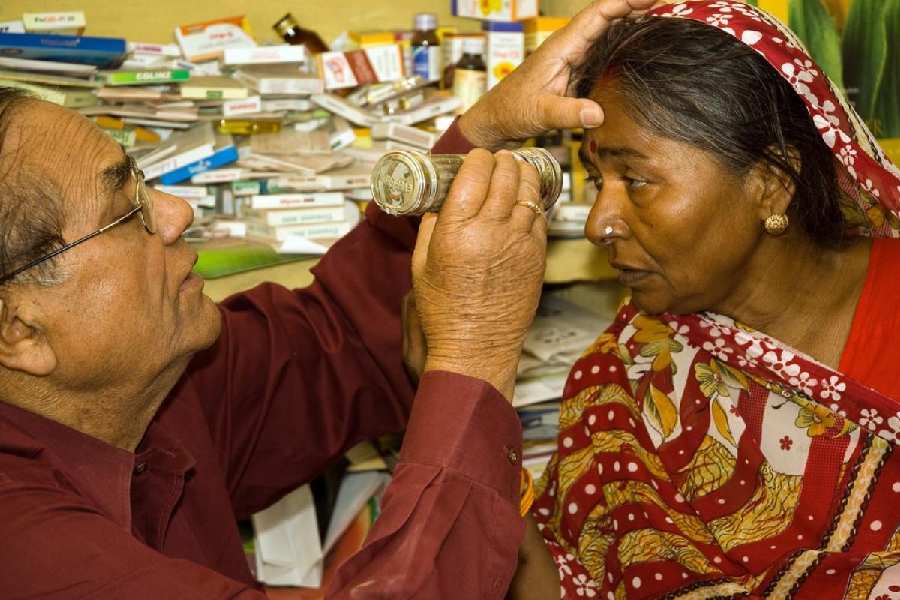Cataract, breast cancer and clogged coronary arteries are among the top three health disorders for which poor households have used the government-funded free hospitalisation scheme launched six years ago and open now to all senior citizens older than 70 years.
The Pradhan Mantri-Jan Aarogya Yojana (PMJAY) has authorised hospital admissions for over 2.2 million cataract procedures, 561,000 breast cancer treatments, and 471,000 coronary angioplasties, the Union health ministry said on Monday in a note released to mark six years of the scheme.
The scheme, since its launch, has provided poor and vulnerable households up to ₹5 lakh per family per year for hospitalisation costs. It provides cashless inpatient services to beneficiaries in hospitals that have empanelled themselves to deliver services under the scheme that pays for around 1,940 treatment procedures across some 27 medical specialities. Over 16,600 government and 12,900 private hospitals have empanelled themselves into the scheme, although not all hospitals provide all procedures.
The Narendra Modi government has estimated that the flagship hospitalisation insurance scheme, which covers 550 million eligible individuals from poor and vulnerable households, will benefit around 60 million additional people as it opens to senior citizens older than 70 years.
The health ministry said the PMJAY had until September 1 this year authorised 77 million hospital admissions, of which 36 million were for women. Cardiology, cancer, gastroenterology and general medicine are among the top specialities used for treatment under the scheme, its note said.
Government hospitals accounted for 57 per cent of the admissions under PMJAY that works through an insurance model under which the Centre and states share the premium and the empanelled hospitals can seek reimbursement for the treatment provided.
Some health experts had in 2018 criticised the scheme saying it would facilitate the flow of government funds into its empanelled private hospitals at a time government hospitals need greater financial support than they receive.
But officials as well as other experts have defended the scheme asserting that it has enabled many poor households to access free hospitalisation, whether private or government hospitals.
In the absence of the scheme, patients in some poor households might have had no access to treatment, said Sarit Rout, a health economist at the Public Health Foundation of India, a research and education institution.
A study published earlier this year that examined the medical expenditure of 1,021 patients who underwent cardiac surgery found that the PMJAY reduced the financial burden and improved the affordability of cardiac procedures in comparison to private insurance.
The study found that patients covered by the PMJAY incurred no out-of-pocket expenditure, while patients who were uninsured incurred expenditure amounts ranging from ₹115,000 to ₹172,000. Even patients with private insurance had to incur expenditures ranging from ₹1,600 to ₹68,000.
The health ministry said the PMJAY has also authorised hospital admissions for over 377,000 urinary tract stone removals, 169,000 high-risk pregnancy deliveries, 160,000 long cancer treatments, 154,000 knee-replacement surgeries and 72,000 hip-replacement surgeries, among other procedures.
The scheme has been implemented in 33 states and Union territories, excluding Delhi, Odisha and Bengal.










